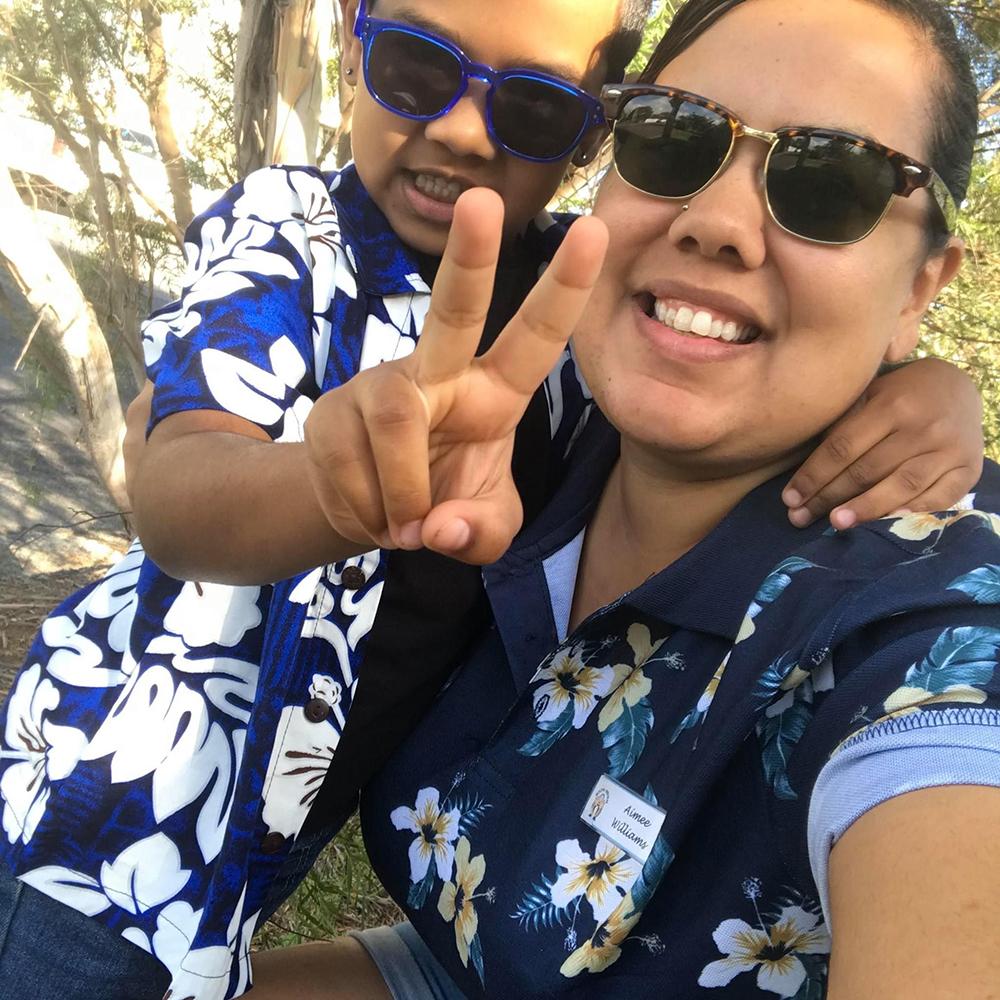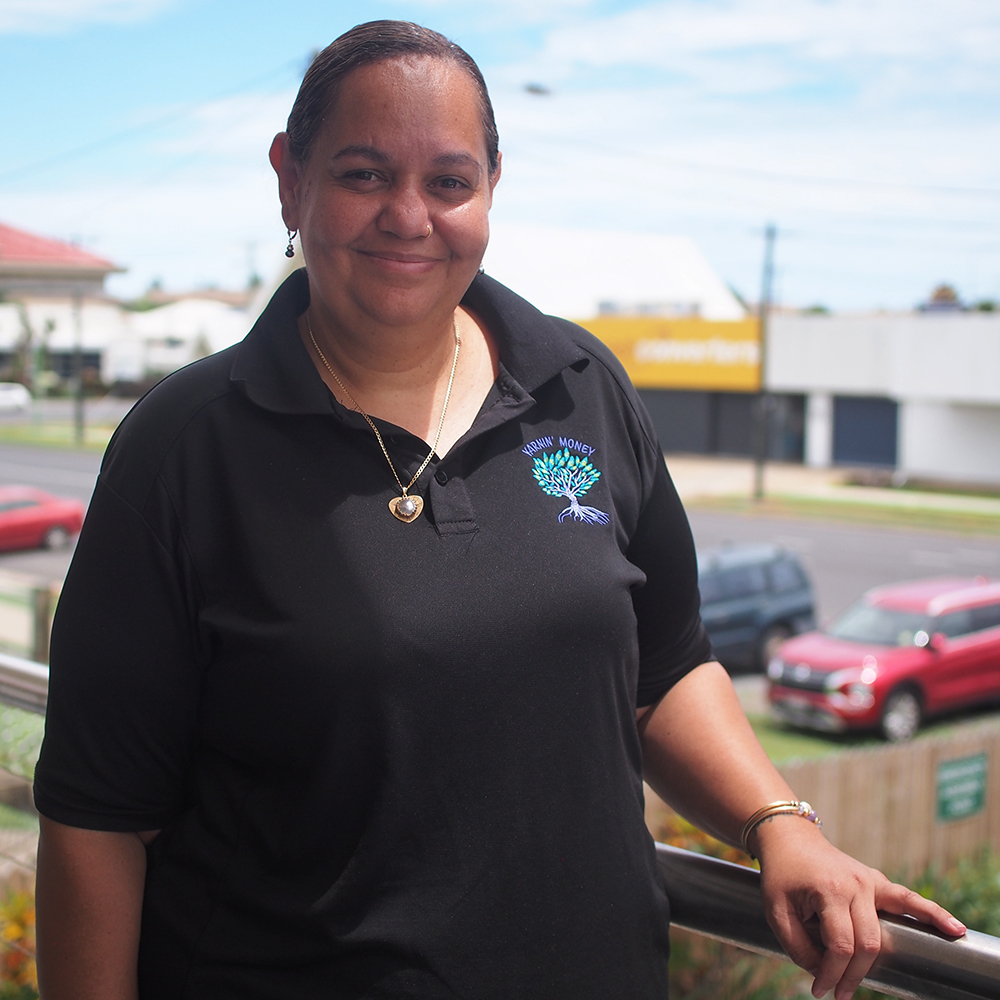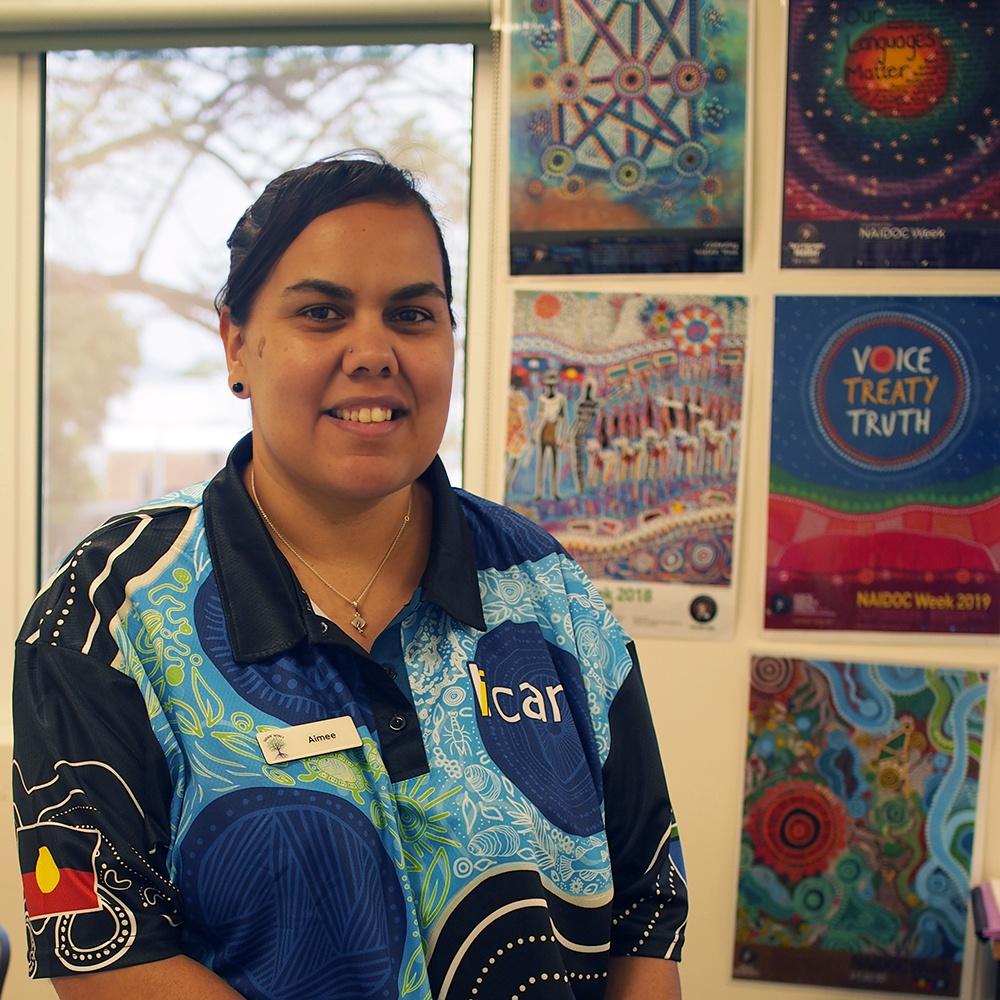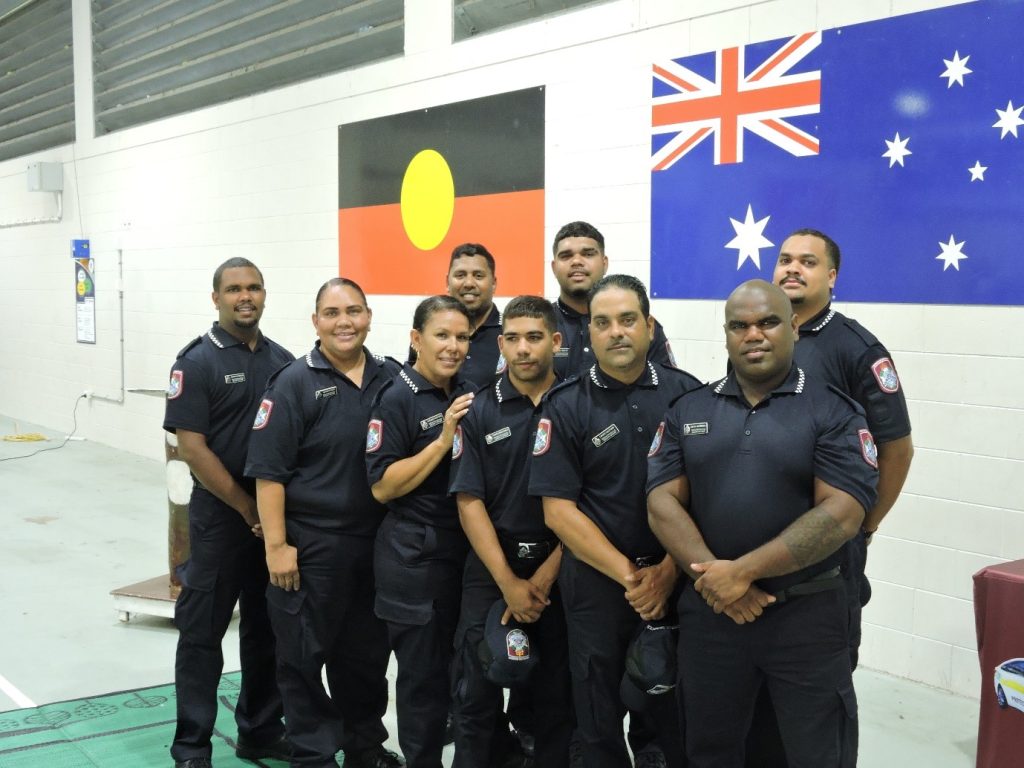
Aimee is a Barkindji woman from Menindee, far west NSW, now living in Cairns. She recently left a career in childcare to take up one of the CommBank and ICAN Learn Cert IV in Community Services Scholarships that includes a skill set in financial literacy education. We had a yarn with Aimee to find out how it’s all going so far…
Welcome Aimee!
So, why the career change from childcare to financial capability?
I’d been thinking about changing from childcare for a while but wasn’t sure what I wanted to do next. I felt as though I was stuck and didn’t have any idea where to go. When I saw the Financial Capability Trainee/Cert IV Scholarship job advertised I thought, ‘that looks alright; I could probably do that’. I liked that this job was a Trainee position, which meant I didn’t have to go into it knowing everything, and I could learn along the way. It’s an excellent opportunity for me to get my foot in the door and pursue a new career.
How do you feel about studying again?
I’m a person who loves to learn new things, so studying again is going to be great. I’m pretty excited (weird, I know!). I like the fact I’m going to learn so much about financial capability and be able to make a difference to people in need.
What most surprised you about the job?
Well, just quietly, before I saw the job advertised I didn’t know this sort of thing existed, so it’s all very new to me. It’s been a bit of a surprise, but in a good way.
What’s something an outsider wouldn’t know about this sector?
When I first saw the job on Seek, I googled ‘Financial Capability Trainee’ and ‘Financial Counsellor’ to find out what they do, and everything came back to ‘they pretty much help people with their money problems’. I didn’t realise we would also look at other areas of the person’s life, such as health, basic needs, family, employment etc. Most people probably think that when you come here it’s all about money issues – but it’s not. It’s about getting a better understanding of the whole person, not just the money side.
What’s the best thing about your new job so far?
I like ICAN’s wellbeing wheel as it opens opportunities for communication to understand all of the issues in someone’s life, not just financially. I also really enjoyed being part of two recent Yarnin’ Money training sessions that ICAN delivered to First Nations young people as part of their career induction. It was great watching the participants take in this new information. I felt it impacted their life and pointed them in the right direction with their financial journey. I can’t wait to be able to make an impact like that. Carmen Hegarty and Majella Anderson are the best role models, and I’m learning so much thanks to them.
How would your 10-year-old self react to what you do now?
I believe my 10-year-old self would probably be a little bit shocked as I always saw myself as a teacher or an educator. At the same time, my 10-year-old self would be proud of me for taking this leap of faith and just giving it a go.
What causes are you passionate about?
I’m passionate about helping my people strive to be the best they can be. When I say my people, I mean Indigenous Peoples, including Torres Strait Islander Peoples. I love seeing Indigenous people doing good for themselves and breaking those cycles. I still have a little bit of work to do around that, but I believe if I can be a good role model to the younger generation, that’s a great start.
Also, as I worked in childcare for 12 years, I’m passionate about children – especially Indigenous children – getting the best possible start in life. Those early years set the foundations for the rest of their lives.
Where are we likely to find you on weekends?
Spending time with my family. I have a nearly 6-year-old son who plays footy with the Roo’s on Saturday mornings, then we love just spending time together as a family, getting outside or going to the cinema. We also like to stay home and chill.
What’s the last show you binged?
I do like a bit of reality TV – the last show I binged was probably Selling Sunset or Below Deck. Believe it or not, I do also like to watch the Block, which has just started again.
Fast forward 5 years, what will you be doing?
Hopefully, we will have our own house by then, be in good-paying jobs, and be happy and healthy. I would also love to take our son on more holidays to experience all of the beautiful things in the world.


